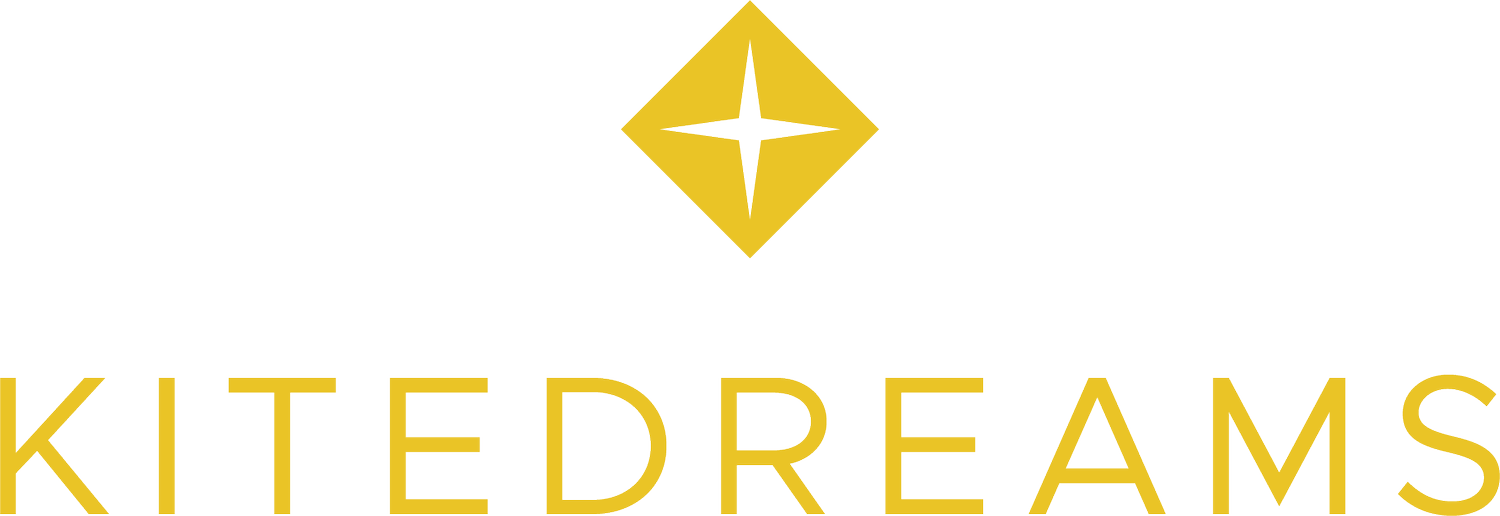Quiet quitting doesn’t necessarily make us happier
“What’s wrong with doing the bare minimum for what I’m being paid?”
“Why can’t I reject being part of the oppressive capitalist system?”
“How can I deal with being burnt by others, or simply being burnt out?”
“How we can cut through burnout, disengagement and injustice at work to find clarity and purpose?”
These questions and more came in fast and furious at the first-ever Salt&Light Live! – our Instagram Live chat – last Monday (September 26) which tackled the hot topic of “quiet quitting”, a trending social media term that has since taken on various interpretations.
For some, it means decoupling their work from their identity. For others, it is about doing the bare minimum and refusing to go above and beyond their job scope. For still others, it is a rejection of the hustle or exploitative work culture.
But as Christians who want to be salt and light in our workplaces, how should we respond to this trend – especially when we understand all too well the pain and struggles of work?
During the 55-minute-long chat, hosts Isaac Ong and Dr Tam Wai Jia, both of whom double-hat as employee and employer, shared valuable insights into how we can cut through burnout, disengagement and injustice at work to find clarity and purpose.
What’s wrong with doing just the bare minimum?
For many people, “quiet quitting” has been a response to the hustle culture or a workplace environment that is unfair and exploitative. To them, doing the bare minimum is a way for them to resist being sucked into the “oppressive capitalist system” (as described by one viewer).
While there may be nothing wrong with doing the minimum for what you have been hired or are being compensated for, as Christians we are called to something greater at work, noted Isaac, founder of social enterprise Colours Global and online campus coordinator at Cornerstone Community Church.
God has called us to be excellent in the work that we do and to serve those around us, and this hard work that we put in is not because we are allowing ourselves to be exploited, but because we are working unto the Lord (Colossians 3:23-24), added Isaac.
“As Christians, we are supposed to navigate this world not just looking with the eyes of our flesh but with the eyes of the Spirit.”
“As Christians, we are supposed to navigate this world not just looking with the eyes of our flesh but with the eyes of the Spirit, and we are definitely called to something a little bit deeper, a little bit higher,” he said.
Pointing to the lives of Daniel and Joseph in the Bible, he highlighted that these men did their best even amid injustice, imprisonment and unworthy masters.
And in doing so, many people were blessed.
“I feel like work is a really beautiful time and place for ministry,” said Isaac. “But as long as we leave that workspace unredeemed by the Lord, as long as we continue to separate it from our relationship with God, work will continue to be the pain in our lives and it will be so tiring.”
Wai Jia, a humanitarian doctor who also runs non-profit organisation Kitesong Global, added that it can be very “one-dimensional” to see our compensation for our work only in monetary terms.
Speaking from her own experience, she shared that she went through a season last year when she felt discouraged at work.
“You’ve got to know what it is that the Lord has called you to.”
“I was like, ‘Wow, all this work that I do, and this is what I get paid?’ I went through this season of really grappling with the Lord, like: Is what I’m doing worth it?” she said.
When the Lord responded by asking her what she defined as her reward, her mindset shifted.
“I realised that there are so many things that the eye cannot see. I realised that I have the opportunity to impact migrant workers. I have the opportunity to impact students, youth, the next generation. All these things money cannot buy,” she said.
“I hope this encourages those of you who are struggling, those of you who feel (you’re) not getting compensated enough. Ask yourself: How is God using you in your workplace? How are you being a blessing and how are you being blessed in turn? What are the things that your eyes cannot see? What are the intangibles?”
It all boils down to understanding your calling, added Wai Jia. “You’ve got to know what it is that the Lord has called you to … There’s nothing else that would propel you forward other than a calling.”
How can we respond to injustice at work?
As we give of our best at work to the Lord, however, many of us will run into injustice. For example, some of us may be taken advantage of by our colleagues or bosses.
“What are some issues in my life that maybe the Lord is beginning to surface that He wants me to deal with?”
So, how do you draw the line between giving your best and being taken advantage of?
Responding to this question posed by a viewer, Wai Jia stressed that it is important to be clear about your boundaries – what you are willing and not willing to give.
“Boundaries are like a gate and you get to choose what you want to let in and what you don’t want to let in. Being taken advantage of is when the door is just there and you’re allowing people to trespass on your resources, your time, your energy,” Wai Jia explained.
She stressed the importance of having honest and open conversations with the relevant people about how we feel, instead of shutting down and “quiet quitting”.
“When God wants us to live with integrity, it really means we have to put our courage out on the table and say, ‘You know what, boss? This is not working for me. This is why. Can we have a conversation?’ And if there is backlash or whatever it is, we ask the Lord for grace to help us go through that,” she said.
Isaac added that it may be wise to seek wise counsel from those who know and love you, allowing them to weigh in on what is going on and let you know if you are really being taken advantage of or are perhaps misinterpreting the situation.
“When we do nothing (‘quiet quitting’), it doesn’t necessarily mean that we will be happier or freer or have more energy.”
Having been burnt before by those he has worked with, Isaac also shared how we can deal with unjust situations.
Firstly, sit down and acknowledge the injustice, he said. Then, pray and ask: “Lord, what do You want me to do about the situation? I need Your help. I want You in this.”
Recalling an instance when he had clients who refused to pay, Isaac shared that he had been prepared to write an angry email demanding payment.
But when he prayed, he felt the Lord say: “Would you show mercy?”
Though it was incredibly tough to obey – “but I did the work!” – Isaac submitted. “And the Lord did provide and He came through all over in the end,” said Isaac.
“Don’t negate faith, don’t negate hope, don’t negate divine intervention. We must navigate this earth not looking at the hopelessness and darkness of this earth, but to the light and say, ‘Lord, how can I be salt and light and how can we live generously so that people will see our good works and give glory to God?’”
Help! I’m burnt out
Many questions posed during the session also touched on the issue of burnout.
For many, “quiet quitting” has been a way to cope with their fatigue, especially since the long pandemic has blurred the boundaries between work and rest.
No strangers to burnout, Isaac and Wai Jia suggested some alternative ways to deal with weariness and a lack of motivation at work.
#1 Take time to pray and reflect
It may be beneficial to take some time away from your work to rest, pray and reflect, said Isaac.
“More than just taking a holiday or catching up on a Netflix show, what does it look like to say, ‘Lord I need you to help me’?”
Ask yourself: Is this feeling of burnout a result of external factors – for example, a heavy workload – or internal factors, such as your own insecurities?
Sometimes we think that we are doing our best for the Lord when in fact we are working to prove to ourselves and others that we are capable, said Isaac.
“What are some issues in my life that maybe the Lord is beginning to surface that He wants me to deal with?” he asked, adding that pain gives us an opportunity to question what is wrong.
As we reflect, we can also consider being more engaged in meaningful and purposeful tasks that give us energy instead of disengaging altogether, added Wai Jia.
“When we do nothing, it doesn’t necessarily mean that we will be happier or freer or have more energy. What we really need is to come to the Lord and find out what it is that He has gifted you with to help you live out your purpose with clarity, with energy,” she said.
#2 Have a conversation with your boss
If you’ve identified the root cause of your burnout to be a heavy workload or an unsustainable pace of work, pluck up the courage to discuss this with your boss, said Wai Jia.
When she realised that her work was taking too much time away from her two young daughters, she communicated her values – being present for her children – to her boss and asked to go part-time.
“The thing about ‘quiet quitting’ is that it’s an inner resistance. There’s no conversation … But if we can take out the ‘quiet’ in ‘quiet quitting’, I think it helps us to bring our courage to the table, to have conversations,” she said.
#3 Bring your weariness to the Lord
Some of us think that doing less will make us feel more rested and carefree. But that may not always be the case, said Isaac, adding that we must differentiate between rest and nothingness.
“For some, they need to take time away and they need to put themselves on a little bit of a pause. But I know that there are people who say, ‘I’ve gone on my holiday. I’ve lowered the load but I’m still burnt out, I still feel unhappy’,” he added.
A verse we can turn to is Jesus’ words in Matthew 11:28-29: “Come to me, all you who are weary and burdened, and I will give you rest.”
Isaac asked: “What does it look like to turn to the Lord? More than just taking a holiday, more than just catching up on a Netflix show, what does it look like to come into the presence of the Lord and say, ‘Lord I need you to help me’?”
#4 Watch out for the signs
The best way to prevent burnout is to be proactive about it, said Wai Jia.
“Sometimes it’s not just about quitting and stopping. Sometimes it’s about what is it that I need to do in this hour and in this moment.”
Instead of waiting for it to happen and then dealing with it, watch out for the signs.
Whenever she starts being grumpy with her husband, Cliff, and daughters, she knows it is time to take a break or do a bit of readjustment in her life.
For Isaac, he senses burnout is near when he gets a little bit moody and starts feeling like “the world is so hopeless”.
Whenever this happens, he takes a break from whatever he is doing and goes for an hour-long walk without his phone to process things with God.
“Sometimes it’s not just about quitting and stopping. Sometimes it’s about what is it that I need to do in this hour and in this moment,” he said.
Find balance in your season
Far more important than resolving to “quiet quit” as a blanket response to burnout or injustice, is to get clarity on your current season in life, said Isaac.
“Instead of finding a balance of work and rest every day, perhaps balance is better found in seasons of hard work and seasons of rest.”
“One thing I’ve learnt is that seasons are incredibly important. There are seasons in my life that I need to go above and beyond. There are seasons in my life that I may have to go past my working hours … There are going to be seasons and places where it will not be the easiest,” he added.
Wai Jia added that while many of us think that we must find a balance of work and rest in every day, perhaps balance is better found in seasons of hard work and seasons of rest.
But that is not to say that we cannot find rest in seasons of hard work, she added.
“When I was a house officer or when I was a new mum, I didn’t get the luxury of a 24-hour rest period. But your Sabbath can look different. It can look like praying in between patients. It can look like nursing your baby and still being in prayerful mode. It can look like a one-hour bath,” she said.
“That helps to develop an internal rhythm of rest, recalibration, which I think is so important if we’re in it for the long haul.”
Missed the Live? Catch the full session on Instagram here.
This article was first published in Salt&Light






